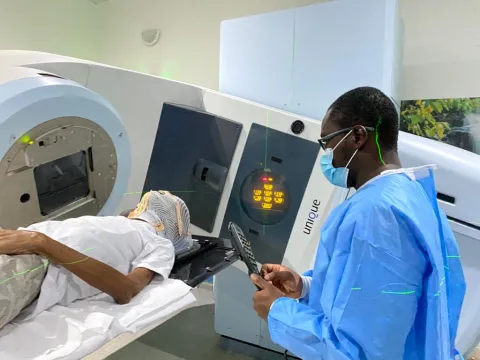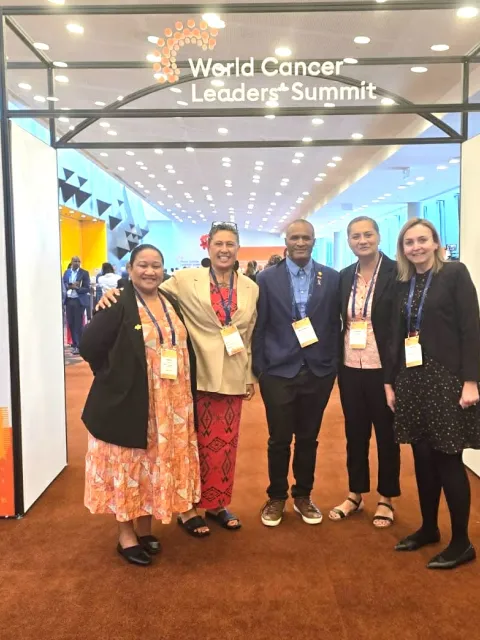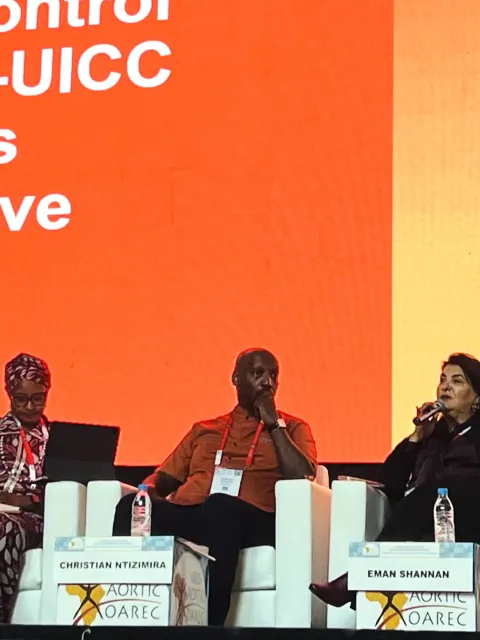Access to radiotherapy: keeping the focus and conversation during COVID-19

Cancer can affect anybody, at any time. Timely and appropriate diagnosis and treatment is crucial in improving treatment outcomes, and in this regard radiotherapy is an important component of comprehensive cancer care. On average, radiotherapy is recommended for and can benefit approximately 50% of cancer patients.
In high income countries (HICs), access to radiotherapy is often taken for granted. Based on the Directory of Radiotherapy Centres (DIRAC) data, over 90% of the world’s radiotherapy machines are located in HICs. Thanks to this, people in these countries can lead a normal life for several years after cancer diagnoses, and many are able to return to their jobs and contribute to society.
The picture, however, is very different in low- and middle-income countries (LMICs). There are fewer than 4% of the world’s radiotherapy centres on the entire continent of Africa and, of these, more than 50% are located in only four countries north of the Sahara. This leaves millions of people in Sub-Saharan Africa (SSA) with no access to radiotherapy services or treatment. The lack of access to radiotherapy, critical in the management of many cancers, makes the prognosis of cancer in this area of the world invariably a death sentence.
As African physician-scientists actively involved in the management and treatment of patients with cancer from across SSA and currently pursuing fellowships in Canada, an HIC, we have seen firsthand the significant gap in access to radiotherapy in the two different income settings. We now appreciate why patients in HICs have better outcomes compared to those in LMICs.
Patients with indications for radiotherapy in HICs start treatment within days or weeks after a cancer diagnosis is made, while the time gap is much greater in LMICs. This is not due to a lack of expertise but rather to long waiting times to get onto a treatment machine, on account of heavy patient load per single treatment machine – or receiving no access at all. For instance, there are a total of five external beam machines (EBRT) in Ghana for a population of 31 million and six EBRT machines in Zimbabwe for 16 million people. In both countries, radiotherapy facilities are situated in two cities, greatly affecting accessibility for most of the populace. This situation is replicated across many LMICs.
Access to radiotherapy is not just limited by the physical presence or absence of facilities, but also by the ability of patients to pay for these services. The majority of patients in SSA have to pay out of pocket for their radiotherapy treatment, resulting in financial crises for most of these patients as the amount is very high in relation to their income. This sometimes leads to patients abandoning treatment or not even seeking treatment in the first place, as they simply cannot afford the costs for their treatment.
As we have witnessed, a great proportion of patients do not return after initial consultation at radiotherapy departments to pursue proposed treatment because of costs. And although some countries such as Botswana, Zambia, Namibia and other Southern African countries have government-funded radiotherapy treatment, the financial burden of treatment remains a significant barrier to care across the continent.
Impact of the COVID-19 pandemic on access to Radiotherapy
The COVID-19 pandemic has stretched healthcare systems in many countries, and people living with cancer have found themselves vulnerable, particularly in countries with weak health systems.
The restrictions imposed by the COVID-19 pandemic have reduced the income of many people, the impact of which is more harshly felt amongst low income and daily wage workers. Travel restrictions have also further crippled access to radiotherapy, especially in these LMICs where most patients have to travel long distances to access and stay for care.
Call for action: including radiotherapy in universal health insurance schemes
The global burden of cancer is growing, and the greatest burden is projected to be seen in LMICs. As resources and attention have been focused on the pandemic, it is of paramount importance to keep the conversation on increasing access to radiotherapy alive. Scaling up access to radiotherapy to meet demand requires investment in human resources and infrastructure, and this requires strong political and government commitment in LMICs, especially with other competing health needs.
The inclusion of radiotherapy in universal health insurance schemes is critical, especially in areas of the world where the number of radiotherapy facilities is limited. This will ensure that all patients can access radiotherapy treatment without financial burden on their families.
Strong advocacy campaigns are therefore necessary, as we aim to improve access to radiotherapy services parallel to the growing burden of cancer.
Last update
Monday 26 April 2021Share this page


